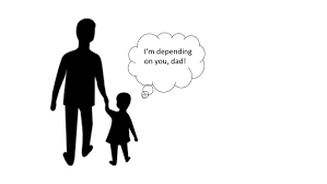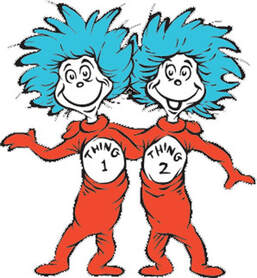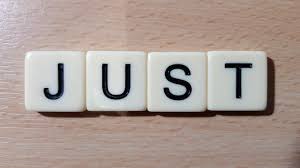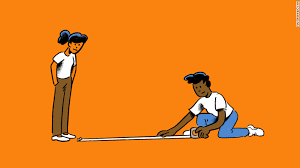 An independent clause is a complete sentence, while a dependent clause can't stand alone and must lean on an independent clause for support. Stay tuned as I add dependent clauses to independent clauses to magically create descriptive sentences! EXAMPLE #1: DEPENDENT CLAUSE = when I walked the dog yesterday "I" is the subject and "walked" is the verb, but we don't know what happened! If I answer that, the transformation to a complete sentence will be complete. INDEPENDENT CLAUSE = I almost stepped on a ribbon snake! That really happened, much to my shock and dismay! The magic happens when you connect them: When I walked the dog yesterday, I almost stepped on a ribbon snake! EXAMPLE #2: DEPENDENT CLAUSE = after Joanna opened the letter "Joanna" is the subject and "opened" is the verb. But we don't know what happened! And I don't know about you, but I want to know more about the letter itself, too. INDEPENDENT CLAUSE = She danced for joy. That's wonderful. But why? The dependent clause, with added detail, will fill in the blanks. Abra-Cadabra!! After Joanna opened the acceptance letter from her number one college choice, she danced for joy. Best of luck to all the college applicants out there, as well as to all students currently grappling with remote and hybrid learning. If you have any grammar, punctuation, or vocabulary questions, please feel free to ask. Your question could spark a new spoonful! Take care, Laura Fineberg Cooper A Spoonful of Grammar
2 Comments
 At first, NOTHING popped into my mind for this week's spoonful. But then, eureka! I reflected that THING is the least descriptive noun in the English language. I decided to challenge YOU, my readers, to banish THING in any of its forms from the following sentences (and from all your writing). If you dare, please share your creative, descriptive replacement sentences in the comments section! 1.) Eek! It's a THING! 2.) I can't wait to hear about the THING you saw last night. 3.) What a remarkable THING that is. 4.) Please bring SOMETHING, ANYTHING to make this party fun. 5.) Let me describe this animal to you. It's a THING! 6.) John brought chairs, blankets, and THINGS to the beach. Have oodles of fun with this! My next Spoonful of Grammar will be about SOMETHING else, I promise you. Take care, Laura Fineberg Cooper  JUST creeps into all kinds of writing, making it tentative, passive, and dull. If you challenge yourself to search and replace JUST before submitting your final drafts, your readers will thank you! Let's review five JUST-infected sentences to prove this point. 1. I just wanted to say that I love dogs. JUST isn't the only problem in this sentence. Go ahead and shout from the rooftops: I love dogs! 2. My dog Honey just finished her breakfast. It would more active and appealing to write this: My dog Honey finished her breakfast and is sniffing around for more food. 3. Marilyn was just about to take a walk when the phone rang. JUST. PLAIN. BLAH! How about this instead? Marilyn had one foot out the door when the phone rang. Which sentence do you prefer? 4. Dinner is just about ready. Here, JUST ABOUT could be replaced with almost or nearly. For clarity, however, I vote for Dinner will be ready in 5 minutes. 5. Juanita felt just about ready to explode. There are more descriptive ways you could write that sentence. Two options include Juanita's anger simmered, ready to bubble over at any moment or the straightforward and bold choice, Juanita exploded. Whether your writing style is descriptive, active, straightforward, or meandering, don't let JUST infect your essays, stories, or speeches! That's a wrap for today's spoonful. Until next Sunday, be safe, be happy, be creative, and be kind. Laura Fineberg Cooper  A Spoonful of Grammar is thrilled to be back! Since we've been APART for nearly two months, it feels appropriate to review the many meanings of APART in this short, sweet return spoonful. Definition #1: away from or separated by a distance Erin feared living too far apart from her family. Definition #2: at a distance or off to the side Aaron stood 6-feet apart from the kids who were clustered together. Definition #3: shattered An airplane was purposely blown apart in the movie My Spy. Definition #4: (with from) except Everyone complied with the rules, apart from Mr. Mills. Definition #5: (with from) indistinguishable The Thompson twins were extremely hard to tell apart. You may be wondering, "Are APART and A PART interchangeable?" The short answer is NO! A PART is comprised of two words and most commonly refers to part of a whole. Here's a good rule of thumb: if you can use the word PART, you can usually substitute A PART. My parting wish is that you and your families remain happy and safe during this challenging time. Sincerely, Laura Fineberg Cooper  It's time for A Spoonful of Grammar to take a short hiatus - "a pause or gap in a sequence, series, or process." The good news? There are 74 earlier spoonfuls for you to review during this time (or any time you wish). The easiest way to peruse spoonfuls is to let your fingers do the walking through All Summaries under the Categories section to the right. Each summary contains brief descriptions and handy links for a range of individual spoonfuls. Since beginning A Spoonful of Grammar in March of 2019, my goal has always been to make tricky grammar, punctuation, and vocabulary understandable in the clearest, most entertaining way possible. It's my sincerest hope that you've found my posts helpful and enjoyable to read and share. Even during my hiatus, you're welcome to ask me your grammar-related questions and I'll do my very best to help you. Your questions just might turn into a future spoonful! Feel free to contact me any time at cooperlaura@yahoo.com with questions, suggestions, or just to connect. Take care of yourselves body, mind, and soul until A Spoonful of Grammar returns in September. Sincerely, Laura Fineberg Cooper |
Welcome to
|
 RSS Feed
RSS Feed
